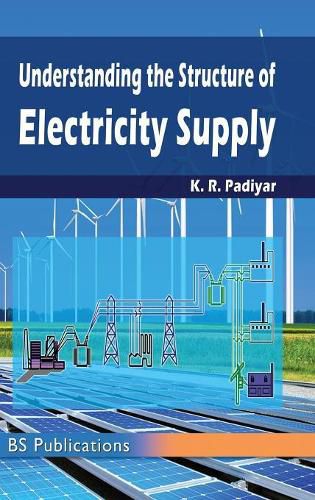Readings Newsletter
Become a Readings Member to make your shopping experience even easier.
Sign in or sign up for free!
You’re not far away from qualifying for FREE standard shipping within Australia
You’ve qualified for FREE standard shipping within Australia
The cart is loading…






This title is printed to order. This book may have been self-published. If so, we cannot guarantee the quality of the content. In the main most books will have gone through the editing process however some may not. We therefore suggest that you be aware of this before ordering this book. If in doubt check either the author or publisher’s details as we are unable to accept any returns unless they are faulty. Please contact us if you have any questions.
The electrification is considered as the greatest engineering achievement of the 20th century. However, the beginning of the 21st century has seen major changes in the ESI introduced by restructuring which has resulted in breaking up of vertically integrated utilities(VIU). Competition has been introduced in power generation and power trading is encouraged.The technical problems facing system operation and control are expected to be solved by information and communication technology using smart grid solutions. However, innovative approaches are required to tackle the operational problems and continue to provide electrical energy reliably and at affordable costs. This requires a good understanding of the physical structure of electricity supply system and the knowledge of state of the art in the system operation and control. This book is designed to help non-electrical engineers to understand the overall picture and the relevant issues that need to be tackled.
The book contains 9 chapters and 5 appendices. The reasons for power interruptions and blackouts are discussed in chapter 1. The electrical machinery (generators, motors and transformers), transmission and distribution are described in chapters 3 and 4. The basics of electrical circuits (that are used to model the various system components) are covered in chapter 2. The power system operation under normal conditions is discussed in chapter 5. The system protection and collapse, technological solutions and smart grid are described in chapters 6 and 7. The renewable power and energy storage systems are presented in chapter 8. Chapter 9 deals with restructuring and competition in ESI and suggests a roadmap for the future. The appendices cover the use of units, electric shocks and safety and nuclear energy.
$9.00 standard shipping within Australia
FREE standard shipping within Australia for orders over $100.00
Express & International shipping calculated at checkout
This title is printed to order. This book may have been self-published. If so, we cannot guarantee the quality of the content. In the main most books will have gone through the editing process however some may not. We therefore suggest that you be aware of this before ordering this book. If in doubt check either the author or publisher’s details as we are unable to accept any returns unless they are faulty. Please contact us if you have any questions.
The electrification is considered as the greatest engineering achievement of the 20th century. However, the beginning of the 21st century has seen major changes in the ESI introduced by restructuring which has resulted in breaking up of vertically integrated utilities(VIU). Competition has been introduced in power generation and power trading is encouraged.The technical problems facing system operation and control are expected to be solved by information and communication technology using smart grid solutions. However, innovative approaches are required to tackle the operational problems and continue to provide electrical energy reliably and at affordable costs. This requires a good understanding of the physical structure of electricity supply system and the knowledge of state of the art in the system operation and control. This book is designed to help non-electrical engineers to understand the overall picture and the relevant issues that need to be tackled.
The book contains 9 chapters and 5 appendices. The reasons for power interruptions and blackouts are discussed in chapter 1. The electrical machinery (generators, motors and transformers), transmission and distribution are described in chapters 3 and 4. The basics of electrical circuits (that are used to model the various system components) are covered in chapter 2. The power system operation under normal conditions is discussed in chapter 5. The system protection and collapse, technological solutions and smart grid are described in chapters 6 and 7. The renewable power and energy storage systems are presented in chapter 8. Chapter 9 deals with restructuring and competition in ESI and suggests a roadmap for the future. The appendices cover the use of units, electric shocks and safety and nuclear energy.